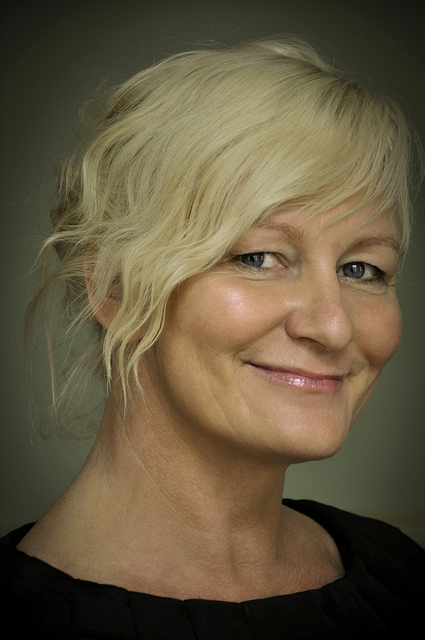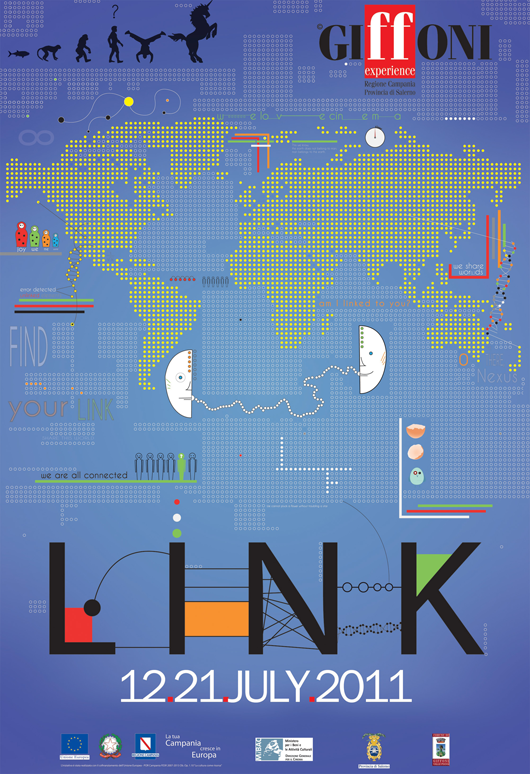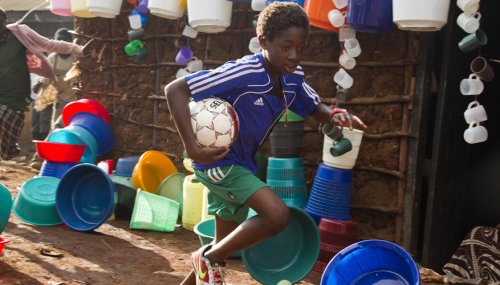 Vibeke Muasya
Vibeke Muasya
Born 1959, Denmark. She is writer, director, choreographer and dancer. She has directed a number of short films, including TULIP NIGHT (TULIPANNATTEN, 1999), BENJI’S AFRICAN ADVENTURE (BENJIS AFRIKANSKE EVENTYR, 1999), BIRDS OF PASSAGE (TRÆKFUGLE, 2001), STOFFERS ØJEBLIK (2002). LOST IN AFRICA is her feature film debut.
Vibeke Muasya
Nata nel 1959 in Danimarca. È sceneggiatrice, regista, coreografa e ballerina. Ha diretto diversi cortometraggi, tra cui TULIP NIGHT (TULIPANNATTEN, 1999), BENJI’S AFRICAN ADVENTURE (BENJIS AFRIKANSKE EVENTYR, 1999), BIRDS OF PASSAGE (TRÆKFUGLE, 2001), STOFFERS ØJEBLIK (2002). LOST IN AFRICA è il suo primo lungometraggio.
Director’s statement
"When I wrote the first draft for LOST IN AFRICA back in 2006, my intention was to make an action-packed, entertaining children’s film, which would also provide insight into and emotional involvement in the “trash” of the world – the orphaned children in the slums of Africa.
"My name reveals that despite the colour of my skin, I have 23 years of extensive knowledge of Africa. That’s why it was important to me to base my cast of characters on actual people. The children were found in the slums and for the most part, they tell us their own stories. The film took shape on location in the slums – with the advantages and challenges that they entail.
"LOST IN AFRICA is constructed around the meeting between two boys – Simon and Amos – who both love soccer. Originally, they are from the same continent, the same city, the same slums – but fate has shaped their lives very differently. Simon was adopted, but Amos wasn’t. Now they meet around the ball. The ball rolls and so do the events.
"LOST IN AFRICA has three rings to its thematic core: the small core family, the extended compound family and the great global family. If we dare to engage in all three rings, we become more complete as human beings. It’s all about embracing the world, and one can only do that if one dares to embrace one’s self. That is Simon’s journey".
Dichiarazioni della regista
"Quando scrissi la prima bozza di LOST IN AFRICA, nel 2006, la mia intenzione era quella di realizzare un film per ragazzi ricco di azione e divertimento, che offrisse anche un emozionante spaccato sulla realtà del terzo mondo, sui bambini orfani nelle baraccopoli africane.
"Il mio nome rivela che, malgrado il colore bianco della mia pelle, ho alle spalle ben 23 anni di conoscenza approfondita dell’Africa. Ecco perché è stato importante per me far interpretare la mia galleria di personaggi a persone reali. I bambini sono stati selezionati nelle bidonville e, nella maggior parte dei casi, interpretano e raccontano le loro storie personali. Il film è stato girato nelle baraccopoli, con tutti i vantaggi e le sfide che ne conseguono.
"LOST IN AFRICA è incentrato sull’incontro tra Simon e Amos, due ragazzi che amano il calcio. Provengono dallo stesso continente, dalla stessa città, dalla stessa bidonville, ma il destino ha forgiato la loro vita in modi molto diversi. Simon è stato adottato, Amos no. Ora si incontrano grazie a un pallone. Il pallone rotola, e così accade tutto.
"LOST IN AFRICA si basa su tre linee tematiche: il piccolo nucleo familiare, la famiglia allargata e la grande famiglia globale. Se abbiamo il coraggio di seguire queste tre linee, possiamo diventare esseri umani più completi. Si tratta di abbracciare il mondo, e puoi riuscirci solo se trovi il coraggio di abbracciare te stesso. Questo è il viaggio di Simon".




 Vibeke Muasya
Vibeke Muasya